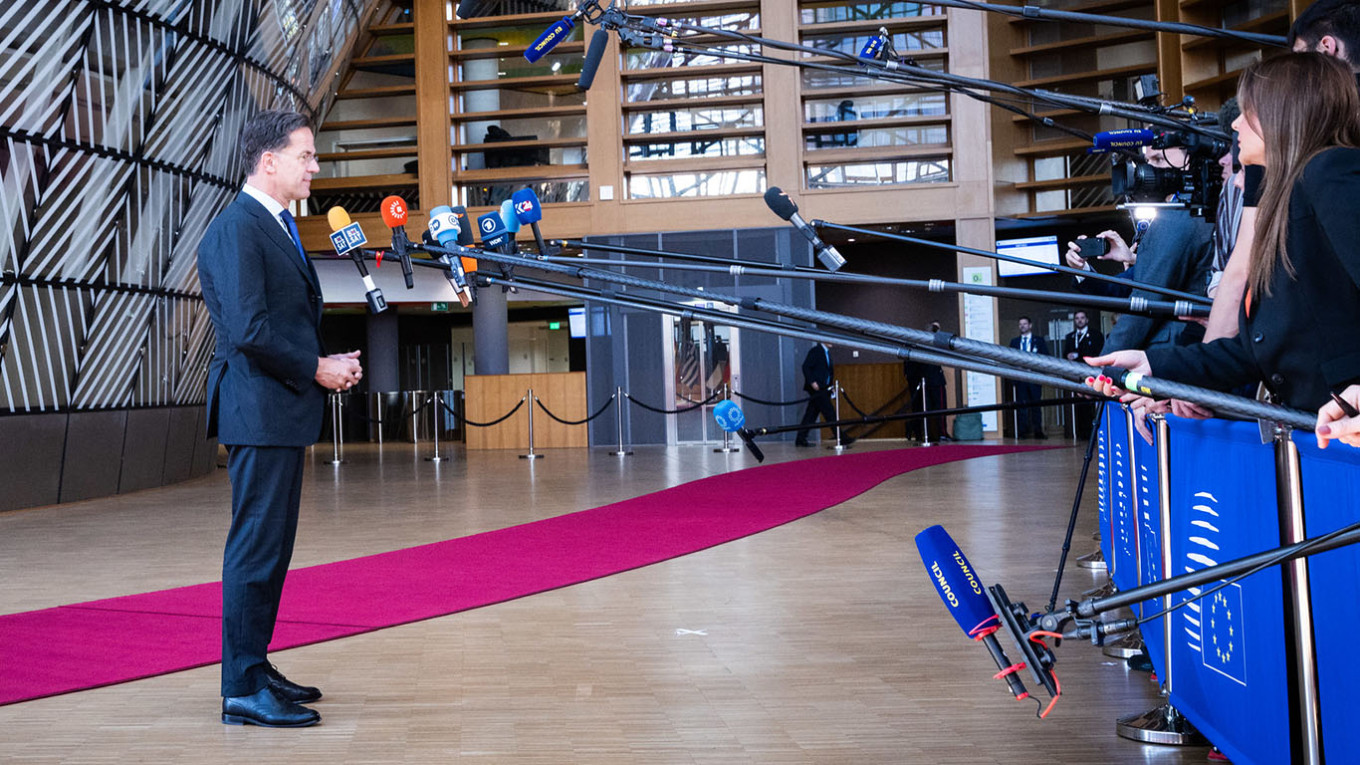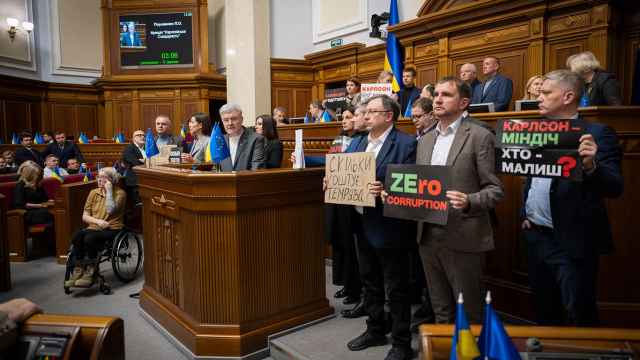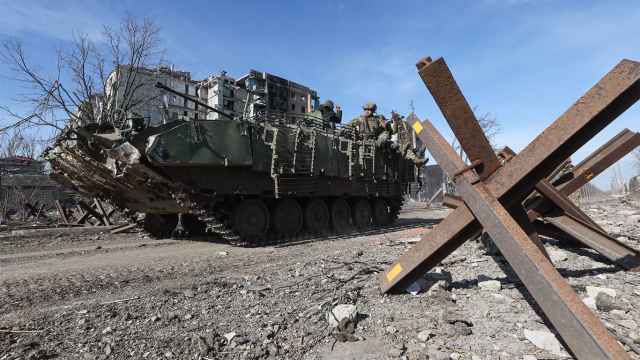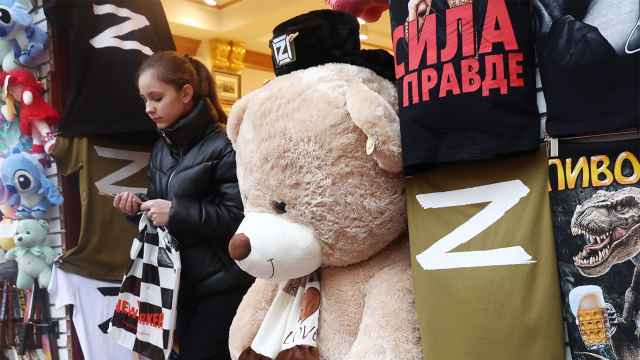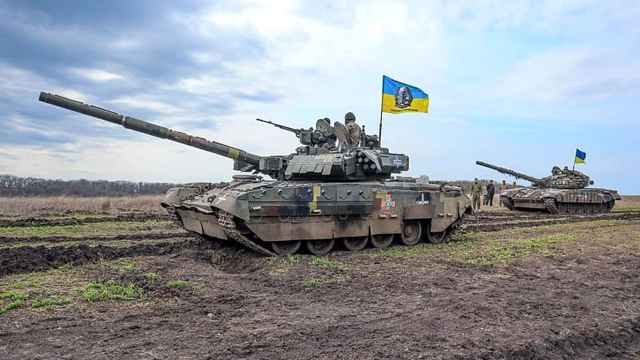BRUSSELS — NATO is limiting public disclosures of its activities and aid to Ukraine amid concerns that Russia will exploit this information, officials from three NATO countries told The Moscow Times on condition of anonymity.
Ahead of the NATO summit in The Hague this month, where members are expected to agree to raise defense spending targets to 5% of GDP, the alliance is worried that Russia is using its policy of transparency for propaganda and military planning.
All three NATO sources confirmed that the alliance will stop disclosing details of weapons deliveries to Ukraine and could further restrict the release of information related to defense planning and deterrence to prevent Russia from gaining advance insight into its actions.
“Everything discussed or said at press conferences ends up in [Russian] Telegram news feeds almost in real time. It gives the impression that they are following it even more closely than our own media,” said one official from a leading NATO member state.
The source pointed to the months-long negotiations between NATO defense and foreign ministers on raising defense spending and support for Ukraine that have attracted heightened attention from Russian state television.
The Kremlin’s state media apparatus showed particular interest in NATO’s meeting with Ukrainian Defense Minister Rustem Umerov, which was followed by an announcement that the alliance would allocate 20 billion euros in additional military aid to Kyiv.
“News wires from TASS and RIA Novosti were filled with details of the discussions,” the source noted.
Another NATO source said that Russian television channels analyzed statements by the alliance’s ministers in their flagship news programs, framing them in a way favorable to Moscow.
The Kremlin is deliberately betting on turning even the smallest incidents into scandals and points of conflict, a strategy demonstrated by recent disinformation campaigns targeting Moscow’s opponents.
French President Emmanuel Macron found himself at the center of these efforts, first through unflattering rumors about his wife Brigitte and later with a viral video in which she allegedly slapped him before they disembarked a plane.
In one famous example, Russian state television channels, pro-Kremlin online media and Telegram news channels spread the false claim that a bag of cocaine was lying on the table in front of Macron, German Chancellor Friedrich Merz and British Prime Minister Keir Starmer on their train to Kyiv.
In reality, it was a napkin.
In response, NATO countries have started restricting the amount of information they publicize, including details of their military support to Ukraine.
Germany has already changed its approach, refraining from disclosing information about the delivery of long-range Taurus missiles to Ukraine in May and subsequently classifying all data related to military assistance.
“At first, we published everything. Then we asked ourselves: Why? We were even listing the number of missiles and munitions. In the end, we realized it was helping Putin, not the German public,” a German diplomat told The Moscow Times.
A Message from The Moscow Times:
Dear readers,
We are facing unprecedented challenges. Russia's Prosecutor General's Office has designated The Moscow Times as an "undesirable" organization, criminalizing our work and putting our staff at risk of prosecution. This follows our earlier unjust labeling as a "foreign agent."
These actions are direct attempts to silence independent journalism in Russia. The authorities claim our work "discredits the decisions of the Russian leadership." We see things differently: we strive to provide accurate, unbiased reporting on Russia.
We, the journalists of The Moscow Times, refuse to be silenced. But to continue our work, we need your help.
Your support, no matter how small, makes a world of difference. If you can, please support us monthly starting from just $2. It's quick to set up, and every contribution makes a significant impact.
By supporting The Moscow Times, you're defending open, independent journalism in the face of repression. Thank you for standing with us.
Remind me later.



